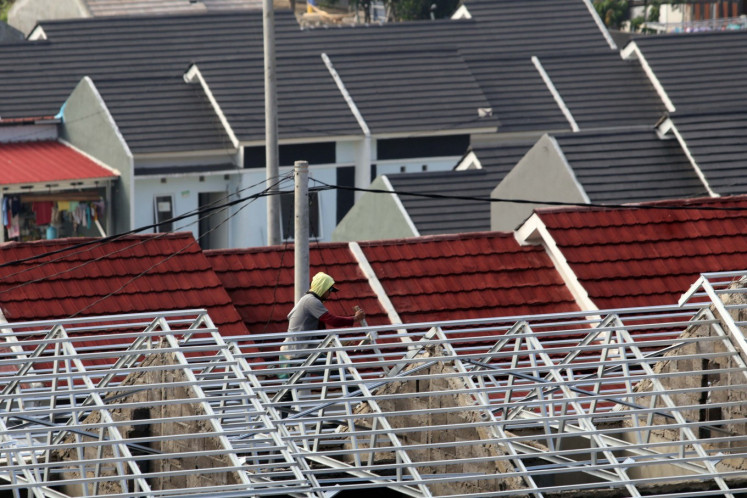Popular Reads
Top Results
Can't find what you're looking for?
View all search resultsPopular Reads
Top Results
Can't find what you're looking for?
View all search resultsSanitation, clean water problems linger: Survey
Despite government efforts to raise awareness of the importance of hygienic living and improved sanitation facilities, many Indonesians still have no access to clean water and basic sanitation services
Change text size
Gift Premium Articles
to Anyone
D
espite government efforts to raise awareness of the importance of hygienic living and improved sanitation facilities, many Indonesians still have no access to clean water and basic sanitation services.
The Health Ministry's director of environmental health, Wilfried H. Purba, said on Friday that based on the ministry's 2013 Environment Health Risk Assessment (EHRA) survey result, further effort was required to increase the outreach of water and basic sanitation services.
According to the survey that was conducted in 55 regencies and cities throughout the archipelago, 75.4 percent of people in South Kalimantan are still defecating in open areas as well as some 72 percent and 70 percent in West Kalimantan and Maluku. The assessment also shows that Banten has the highest percentage of people with no access to safe water (62 percent), followed by Central Java (49.6 percent) and West Java (48.5 percent).
Data from the National Development Planning Board (Bappenas) showed that up until 2013, 42 million Indonesians were still defecating in open areas outside their houses, including rivers. 'We are stepping up our campaign on clean living by trying to increase the number of villages participating in the society-based sanitation facilities [STBM] initiative,' Wilfried said. 'The ministry's initial target was at least 16,000 villages participating in STBM by the end of 2013, however, the program reached only 14,900 villages by this month,' he said, adding that more campaigns on clean living would take place throughout the country.
The STBM initiative launched in 2010 aims to improve awareness among communities on the importance of clean and hygienic living. The program aimed to curb open defecation and promote clean living so that people would wash their hands with soap, consume only well-prepared food and properly dispose of their domestic waste.
'With the STBM program, we are also trying to shift the public's mindset about sanitation and hygienic living,' Wilfried told reporters. 'With the change in mind-set, we hope there will be increasing demand for sanitation facilities, which will trigger entrepreneurship in sanitation and clean water management among the community, for instance in toilet and septic tank procurement.'
Dedy Supriyadi Priatna, Bappenas deputy chairman for infrastructure, said only 57.35 percent of people had access to sanitation facilities in 2012, well short of the Millennium Development Goals (MDGs) target of 62.41 percent.
Bappenas data showed only 58.05 percent of people had access to safe drinking water, much lower than the target of 68.87 percent.










